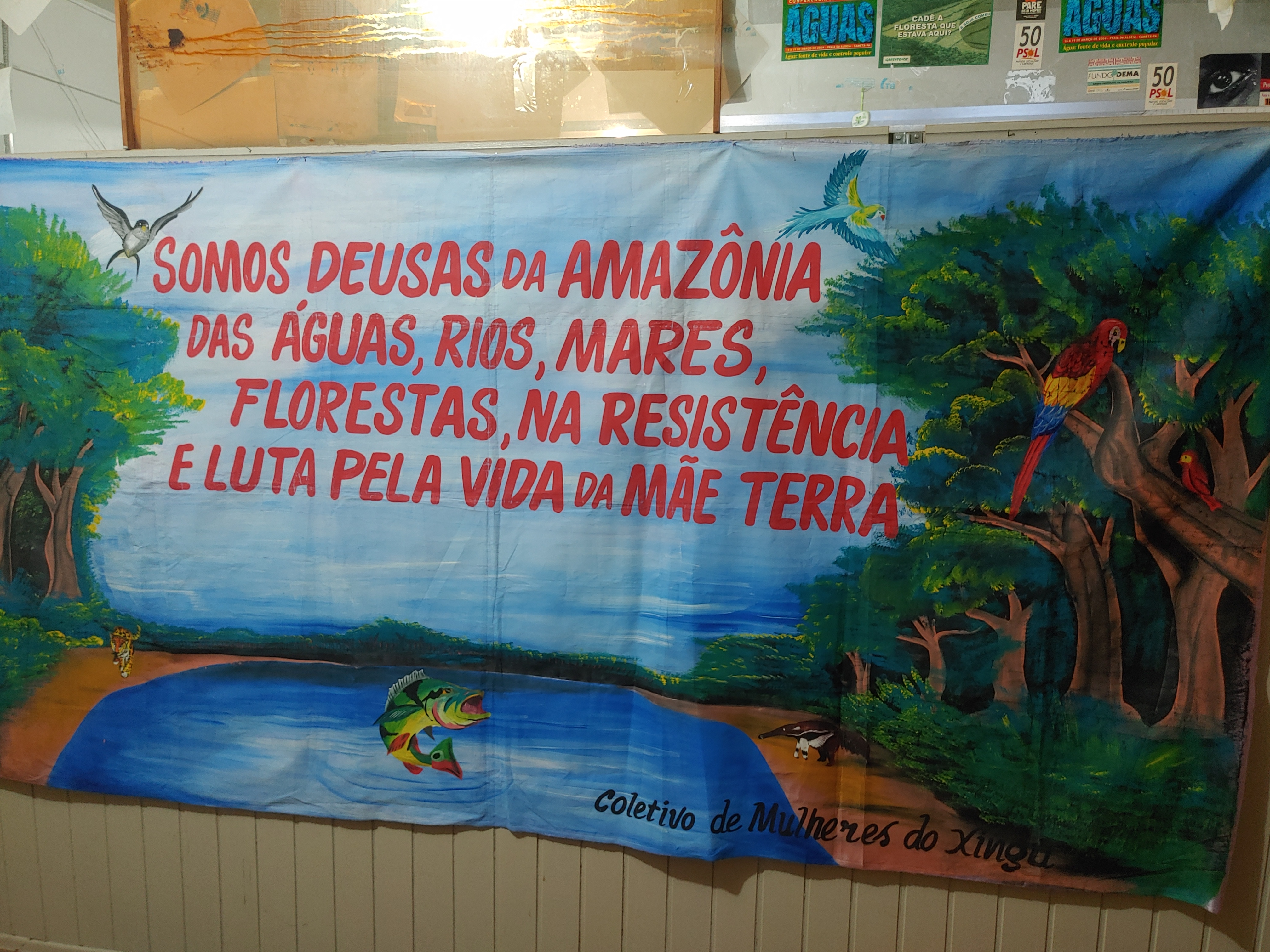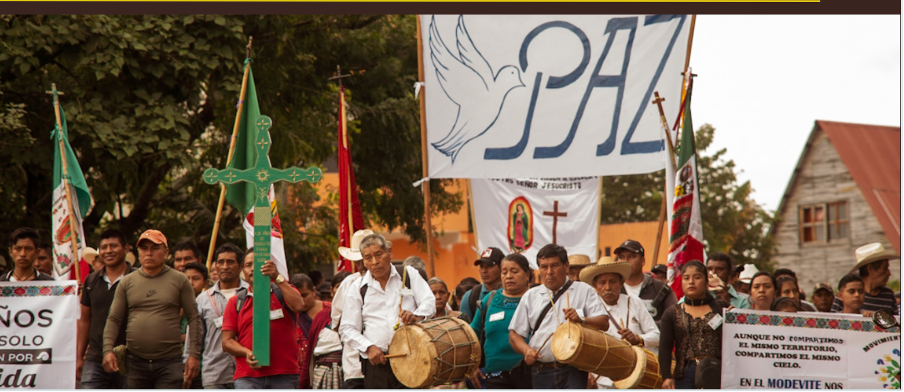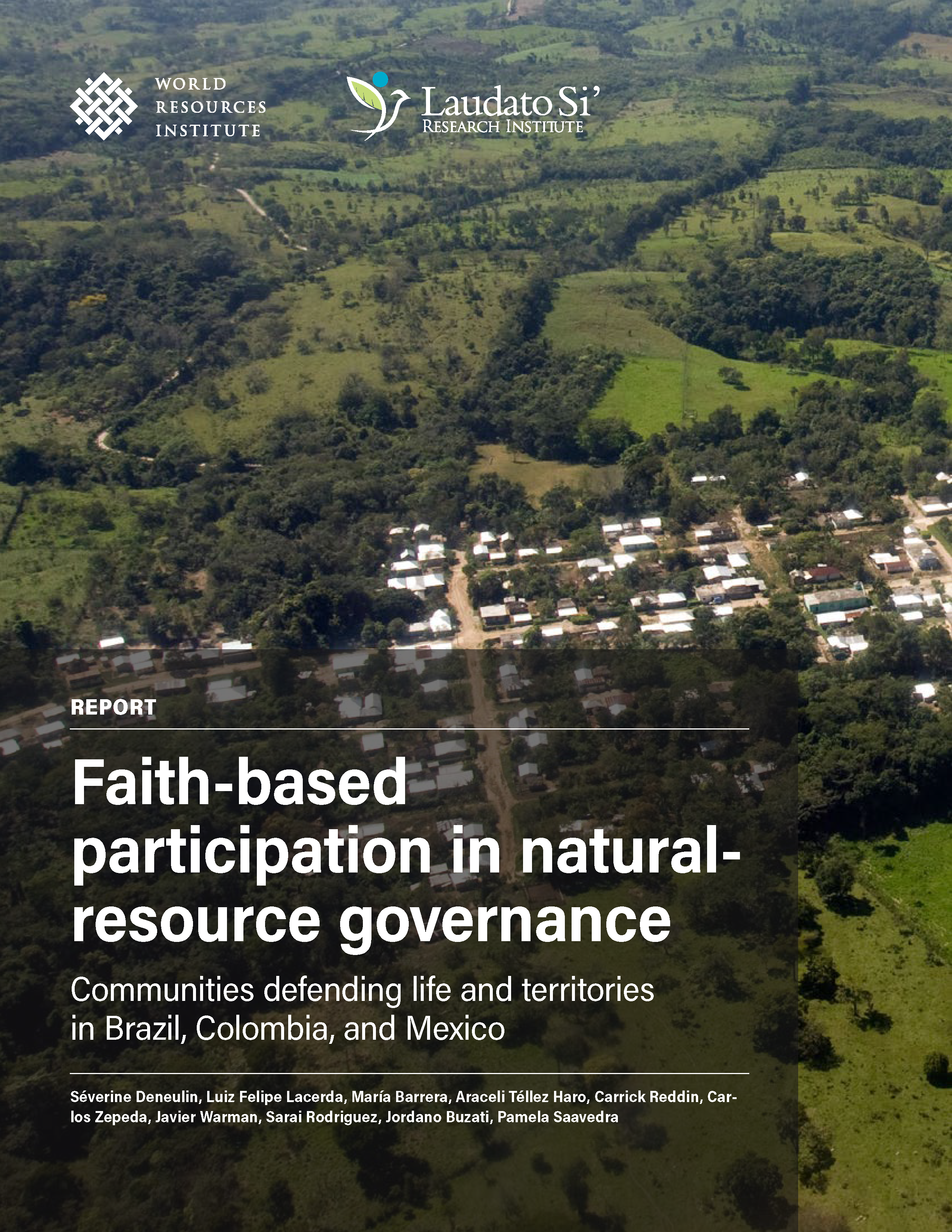LSRI launches new report on Faith-Based Participation in Natural Resource Governance
Key Details
Faith Communities Making Hope and Change Happen in Latin America
‘The connection with life is the source of hope to reconstruct what has been destroyed. Without that connection, that strength coming from connection with forests, rivers and ancestors, there would be no motivation for the struggle.’
Such were the words of members of the faith communities sharing their stories of struggle and survival for the recently launched report Faith-Based Participation in Natural Resource Governance: Faith Communities Defending Life and Territories in Brazil, Colombia and Mexico. The research was funded by the Ford Foundation’s Natural Resources and Climate Change Program and conducted in partnership with the World Resources Institute and local faith communities. The research report was launched globally at an online webinar on 26th June 2024. LSRI’s research team included Dr Séverine Deneulin, the Principal Investigator, and Dr Carlos Zepeda, who supported the research operations with the team of consultants in the region.
Why was this research needed and what burning issues did it seek to address?

Faith communities in Latin America play a vital role in defending life and territories against exploitative practices which harm nature’s intricate balance. These communities have become key centres for the peaceful resolution of environmental conflicts arising from the politics of natural resource governance in the region. This matters because it is in this region, one of the most biodiverse on earth, that life has been most threatened in all its forms. Latin America today ranks as the world’s top hotspot for environmental conflicts, with Brazil, Colombia and Mexico the most dangerous countries in the region for environmental defenders. But against these threats to life, faith communities have been rising as beacons of hope and resilience with their alternative practices, actions and discourses. Despite their pivotal role, research and policy studies have largely neglected these social actors, making their ways of being and doing invisible until now.
In the words of Dr Deneulin: ‘Researching the role of faith communities in environmental governance in Latin America has been not just deeply rewarding but also transformative to all of us involved in the production of this report. I am delighted that our team was able to co-create this contribution to knowledge with the faith communities themselves. We changed the name of the report from Natural Resource Governance to Faith Communities Defending Life and Territories in Brazil, Colombia, and Mexico precisely because we quickly realised that the communities were telling us that the problem began right there in the framing of the problem as one of “natural resource governance”. For the faith communities on the ground, the issue was not about “governing” nature and neither about framing nature as a “resource” ready to be used for the sole benefit of human needs or financial gain. Instead, the key concern was about defending life, all of its rich ecosystems and everything that sustains it and makes it flourish.’

Faith Communities as Agents of Peace, Justice and Change
The report includes among its key findings the pivotal role that faith communities play as a mobilizing force, advancing human rights and environmental justice simultaneously thanks to their deeply rooted faith-based values, strategies and actions, as demonstrated by our study of the Belo Monte Dam in Altamira in the Brazilian Amazon. In our study of a river diversion project to make way for agro-industrial expansion in the Brazilian Northeast, faith is the core ingredient for the community basis of their civil mobilisation in defence of human rights. In our case study of an oil project in the Colombian Amazon, faith transcends denominational boundaries, bringing together Catholics with those of other faith communities through the unifying theme of water as life. In our study of faith communities in Chiapas in Mexico who mobilized against a highway project, Indigenous spirituality and faith in God have become the basis for resistance. In the words of Dr Zepeda,
‘Faith communities offer unique and powerful strategies to advance social and environmental justice. They epitomise how to put integral ecology into practice, with deep policy implications. This report provides unequivocal evidence that the central role of faith communities in solving socio-environmental disputes cannot be denied. On the contrary, it must be supported financially and technically, including strengthening women’s leadership within these communities. Faith communities provide compelling reasons to support Rights of Nature legislation and treaties that protect environmental defenders such as the Escazú Agreement and beyond.’


